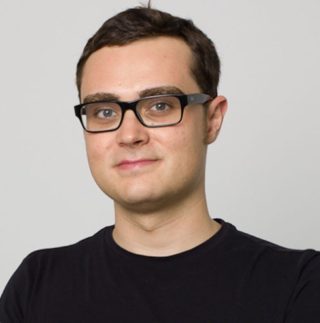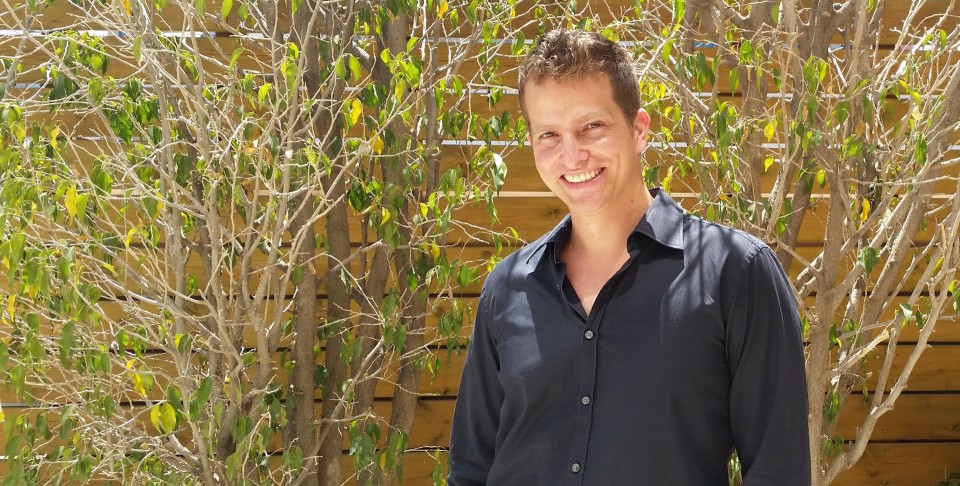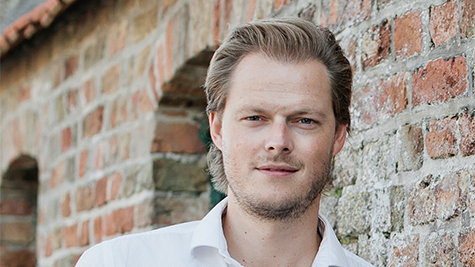Casual Connect has always been about educating game developers to keep them at the top of their game. Recently, Computer Games Association, Casual Connect’s parent organization, unveiled their United in Education initiative. Calling it their “largest initiative”, United in Education is meant to provide “a comprehensive set of educational materials for games industry professionals”. At Casual Connect Kyiv this will be reflected in two days of hands-on workshops under the United in Education track. The workshops can essentially be split into three categories: business development, game monetization, and platform insights.
main
Europe 2017Video Coverage
Tarush Agarwal: How Partner Networks are Advancing the Industry | Casual Connect Video
As the dynamics of app stores change, what does that mean for developers and business models? At Casual Connect Europe, Head of Business Development at Toca Boca, Tarush Agarwal, highlighted how the company is leveraging partner networks and utilizing a diversified business model in order to reach new consumers across the globe. Afterall, for developers searching for creative solutions and to add value for their customers, developers should “Think global at a local approach to do global deals”, Tarush said. “We want to be where consumers are”.
Exclusive InterviewsPR & Marketing
David Mohr: Summoning Mobile Success

David Mohr is the General Manager at GAMEVIL COM2US Europe. They manage the European operations for Korean parent companies GAMEVIL and COM2US and are responsible for localization, community management, customer support and business development in the region.
“We also provide a lot of marketing and PR support for GAMEVIL and COM2US titles, Summoners War being a very high priority,” David said. “I was very fortunate to meet Kyu Lee, the president of GAMEVIL USA, at Gamescom a few years back, and everything started from there.”
“I really enjoy working for a Korean company and being in close contact with our U. S. and Korean operations on a daily basis,” David added. “It’s great to be connected with so many people all across the world.”
Europe 2015Video Coverage
Leonard Frankel: Taking Plarium to Mobile | Casual Connect Video
Leonard Frankel presented tweaks that could boost already solid games’ monetization, engagement or retention at Casual Connect Europe 2015, using games from the Indie Prize Showcase as well as Plants vs. Zombies and Candy Crush Soda Saga as examples.
USA 2014Video Coverage
Christine Lee - Inspired By Passion, Creativity, and Innovation | Casual Connect Video
Christine Lee brought up the topic of ads during the panel she moderated at Casual Connect USA 2014. “If you really look at the evolution, a lot of people still say mobile is newish or developing,” she said. “But if you think about it, five years ago: banners, that was it. And then eventually interstitials. And then videos, video interstitials, and now rewarded interstitials. Offerwalls, animated, in-play - there is so much going on with ads, and its interesting.”
Christine Lee, Chartboost’s director of business development, Americas says, “I like to keep things different from the norm.” She describes herself as ‘quirky’, and she will send life-sized plush game characters to partners, or play comical or socially relevant YouTube videos before team meetings. She even keeps a team fish named after the team quirks – NAD.
Empowering Others
Yet she also describes her life as a balance between strength and precision, with creativity and openness. So perhaps it is no surprise that her hobby is teaching flying trapeze and circus arts, an activity that uses all these qualities. She finds teaching so fulfilling because it gives her an outlet to share and empower others to do the things that have provided her with the greatest challenges and satisfaction.
Lee has been playing games all her life, starting with online PC games like Myst and Monkey Island and transitioning to mobile with the rise of the app stores. She worked at AdMob prior to the Google acquisition, where she had the opportunity to partner with developers across various verticals, including gaming, entertainment, local/dating, and retail. Gaming stood out as the industry with the most passionate developers, always pushing ahead of the curve and driving innovation.
The passion, creativity, and innovation are what keep her in the games industry. But even if she were not in the industry, she would want to be working on a product that serves a need and finds a solution that doesn’t already exist. She is fascinated by companies that find answers and solutions that enhance lives or other companies, such as Square, Google, Instagram, or Lyft, for example.
Focused on Long-Term Partnerships
At Chartboost, Lee manages the business development and sales team and works closely with product and marketing. The founders of Chartboost came from Tapulous, and happened to be her clients at AdMob. When CEO Maria Alegre explained the product and company philosophy, Lee was immediately sold. She says, “The platform stands for things that typical ad companies don’t deem important: transparency, consistency and a focus on long-term partnerships.” She became one of the first twenty employees at Chartboost, and the experience she had at Microsoft, Google, and AdMob translated directly to her role there.
Lee has been able to build the top sales and business development team in the industry while at Charboost. She claims, “The team works tirelessly with partners, and always with class, intelligence, and a consultative approach. I honestly couldn’t be more proud of them and our accomplishments.”
Meeting The Developers Needs
The next big trend coming to the games industry is the sophistication of mobile and games, according to Lee. She says, “Developers are getting smarter, platforms are getting more complex, tracking is becoming more accurate, and innovation is consistently on the rise.” At Chartboost, they are always listening to developers, and building products and solutions that developers need and want. With the rollout of rewarded video, post install analytics, and retargeting, they are part of the rise of mobile ad tech, and are helping to push the envelope of innovation. She feels, “It’s rewarding to be part of an industry where we’re moving quickly and in the right direction.”
Lee loves casual games but calls herself a “hardcore casual gamer” because she devotes hardcore amounts of time to casual games. Currently, she is playing three games, all with very different genres and target demos. Her favorite games are all mobile, on iOS: Boom Beach, Fairway Solitaire, and Kim Kardashian: Hollywood.
She considers herself ‘platform agnostic’; if a game is available on both iOS and Android, she has no preference, although there was a time when she used iOS only. She also appears to have no preference about where she plays; once she even played while on a stand-up paddle board and almost bumped into a sea lion.
Lee especially enjoys the social aspects of games. So, with her Xbox and Xbox Kinect, she hosts Dance Central tournaments in her living room for family and friends.
Asia 2014Video Coverage
Yan Marchal and Embracing Change | Casual Connect Video
While speaking at Explore Beijing, a Casual Connect event, Yan Marchal had this to say about mobile publishers: “I can’t think of anyone who has told me ‘I got a publisher deal on mobile, and I am happy about it.'” He also moderated a panel on the publishing and distribution options for developers during Casual Connect Asia 2014.
Yan Marchal, founder and managing director of Sanuk Games, started his company out of frustration. He was just tired of feeling dissatisfied with his life, professionally and geographically. Although he considered himself fortunate to have been hired by Ubisoft right out of school and enjoyed working as a programmer, after a few years, he was becoming bored but saw no opportunity to move to a different position. So 10 years ago, he made the decision to leave both Ubisoft and Paris and moved to Bangkok.
The first few years were difficult, but Sanuk Games went on to become a self-sustaining studio. Marchal feels the technical skills he developed while working as a programmer were important in getting the studio started because they provided immediate know-how and credibility. But he says, “Business skills I had to learn on the fly.”
Hidden Talents
These days, he finds business development the most enjoyable part of his work and gives credit to his team who provides him with great games to showcase at trade shows. He says he has continued in the games industry simply because he likes it. And, of course, it isn’t particularly easy to change to a different industry if you don’t already have some connections in it. He considers himself fortunate to have found this industry. If not, he suspects he would have been developing software for some industrial application.
Marchal believes the game Sanuk Games is now developing will be the best one they have made, although he doesn’t yet know how it will be received. But he emphasizes, “I am proud enough when I show it to business partners!”

Gaming is something Marchal considers important to his work, essentially surveying the market. He usually plays on mobile and handheld console, and tries not to spend too much time on any one game. But for the last year, he has been most involved with Fieldrunners 2.
He uses both Android and an iOS tablet. Android has more hardware, so he could get the phone he wanted: a large screen, replaceable battery, extendable memory and a sensible price tag. But he feels iOS provides the better game experience with lower hardware fragmentation.
Goodbye Consoles

In the future of the games industry, he expects to see home game consoles gradually disappearing once the current generation becomes obsolete, as they are being attacked by more versatile devices. He points out, “PCs can easily be connected to TVs and set top boxes can play games. Handheld game consoles are already getting weaker as a result of competition from mobile.”
He feels the free-to-play business model will remain strong in some game genres, but he doesn’t see it becoming universal in the industry. “It frustrates players regardless of whether they pay, because then they pay too much for what they get, or not, because then they don’t get access to what makes the game fun,” he insists. “This traps uneducated players. There are high spenders who are willing to pay a lot and are happy with what they get, but they are not the majority.” He believes, “There should be a growing base of educated players willing to pay a reasonable premium to get a fully unlocked game geared toward satisfaction rather than frustration.”
BusinessExclusive InterviewsIndustryOnline
Sergio Salvador: Passion, Inspiration, and Creativity
Sergio Salvador, the head of games partnerships at Google, developed an interest in video games at an early age. He was 12 years old when he received his first computer, a Sinclair Spectrum 48k (a popular choice in Europe at the time). He was expected to learn to code on it, but quickly discovered he enjoyed the end product much more. So he spent many hours playing games like Elite, Manic Miner, Skool Daze, Gauntlet, Way of the Exploding First, Fury of the Furries, and Atic Atac.
Salvador’s career has also focused on the end product, as he has served as business development, product marketing, product management, and general management. Most of his career has been spent with Electronic Arts spanning several countries, including Spain, UK, Hong Kong, and Singapore.
A Life of Games
While studying for his PhD, he made his first entry into the serious side of games with an online games magazine he founded with a friend. The magazine had reviews and editorial content and was a great success, becoming the most popular games magazine in Spanish in the world.
One particularly rewarding experience in his career was the international launch of Battlefield 2 while he was based in London. He decided to do something rare for EA at the time: launch a special edition of the game with a great box and memorabilia inside. It became incredibly popular, and the game did well overall. He still owns one of these special editions in an unopened box.
The games industry when he started out was quite different from today. One of his first roles with EA was in the online division in Europe, working on the launch of the online games services, known as EA.com at the time, a very early predecessor to the Origin service. The launch of the service was difficult at the beginning; it came just after the dot.com bubble burst. He emphasizes that it was hard going at first, with uncertainty and diminishing support both internally and externally, but eventually, as the online industry overall began to recover, the service started getting off the ground.
Focus on the People
Salvador’s career has always focused on the business side of the games industry, and he finds the skills necessary for success are interchangeable with those needed in other industries. One of the skills he feels is critical to develop is a laser focus on the user, whether external, or, less commonly, internal. He insists, “Identifying a problem or need a user has, and doing everything in your power to find a solution for it, almost always results in a positive outcome.”
Unfortunately, Salvador has noticed it is common under certain company and industry conditions to feel pressure to focus on driving revenue. He asserts, “This is anathema to a great partnership. Focusing on the partners’ needs and working to help them find a solution is the right premise to any partnerships-focused work. Solving the problem a partner has will routinely end up being beneficial to both partners, with revenue being a common desirable side effect.”
Leave Room For Fun
These days, he is spending quite a lot of his time in China and Japan meeting partners and presenting at conferences. Working globally requires flexibility and long days; early morning is a good time to connect with the team in North America, work with Europe starts at about 3:00 PM, Singapore time, and in between, he is involved with the Asia-focused work, reviewing the status of different discussions or working on overall strategy for different partners.
Salvador believes it is essential to take time away from work; he normally does this on weekends. Usually he devotes this time to his family, but when he is not with them, he is training for marathons, playing tennis, attending yoga classes or learning to play the electric guitar. He also lectures on digital marketing one evening a week at a local polytechnic, claiming this change of pace feels like free time, and is on the boards of a local NGO and a global games conference.
Tips for the Next Gen
To people starting out in the games industry, Salvador recommends focusing on the future with mobile, mobile, mobile! He recognizes that the online games industry is large in Asia and consoles are a big part of the industry in Western countries. But he insists, “The future is in mobile, and that doesn’t mean only smartphones.” He recommends, “Settle on an idea you are passionate about and start experimenting with it on phones, tablets, wearables, and virtual reality platforms.”
Passion is the attribute he feels is most important for the next generation of games professionals. “Games are a form of art, possibly the most interactive and entertaining form of art,” he insists, “Players are almost always passionate about games they play and games they love if they can feel the passion that went into making them, whether they are hardcore or casual gamers.” So professionals should be passionate about the work they are doing, whether that work is directly designing and creating the games or is the business side of the games industry. It all contributes to great gaming experiences.
Defining the Market
Saturation and business models are always important concerns when he is working with partners. To some extent, he says this is an Asia-focused view of the world, particularly China, where games markets are reaching the point that makes long-term business unsustainable for small companies. Business models are now gravitating to micro-transactions and in-app purchases, models which are essentially the same for different platforms. Today, with the number of games available in online and mobile, only the top developers are making any real money, while the majority of companies only generate enough revenue to continue plodding along, but are limited in how much they can innovate. Salvador recognizes that this will be damaging to the industry long term until a painful market correction happens.
He believes that mobile platforms will continue to define the market in the foreseeable future, with new platforms bringing both challenges and opportunities. This evolution of the games industry will allow games to be more portable, possibly more customizable, and will make them significantly more mass market. He points out that there are great experiments going on now, such as Google’s augmented reality game, Ingress. Salvador says, “The team will be working this year with a select group of developers to build games using geographic data from the game, with a full API expected to release to the public in 2015.”
As a gamer, Salvador is excited about virtual reality technologies, claiming we now have the right talent and the right computing power in small formats. He believes, “Both Morpheus and Oculus seem to be inspiring developers, and whether they deliver what they promise or not, inspiration always leads to creativity and new ideas being generated. That can only be good.”
Sergio Salvador will explore solutions for the challenges facing developers who can’t live on in-app purchases alone during Casual Connect Asia 2014. More on his session can be found on the conference website.
Video Coverage
Maarten de Koning: Navigating the Minefield of Rapid Change | Casual Connect Video
“The biggest incentive for developers used to be funding; now you need to bring additional services,” Maarten de Koning said during Casual Connect Kyiv 2013.
Maarten de Koning is Director of Business Development Europe for Digital Development Management, the world’s leading consultancy and talent agency for video games and digital entertainment. DDM has three divisions: Game Studio Representation, Game Industry Services and Game Production Services. All are dedicated to servicing development studios and the games industry across all platforms of connected entertainment.
De Koning is responsible for overseeing the overall management of DDM Europe and its clients. He has a financial background, as well as experience in games development as a producer, so he is in a good position to listen and to understand the needs of their clients and to help them do what they do best: making great games.
Keeping Up
De Koning is well-placed to observe trends in the games industry. He says, “Keeping up with the insane speed of new trends and business models, and adapting to them as a development studio is very challenging, to say the least.” But he thinks that the one thing that will most affect the games industry in the next few years is having one universal (mobile) device, allowing users to play any game from all formats anywhere they want, streaming over the cloud.
He believes there is no easy way to respond to the constantly changing industry because these are the result from external factors and influences on the market in general. However, he suggests that developers, and sometimes even publishers, should specialize in things they have done well and stick to that. Trying to change with every new trend makes up for a poor long-term strategy.
Mitigating the challenge of adapting to the changing needs and trends of the games industry is what DDM does. They advise clients on what they should focus on and support them in their business development efforts, making sure they get the right deal with the right partner. De Koning emphasizes, “We help them to navigate the mine field, as this is what I feel the industry sometimes is. It’s simply a hit or miss.”
Moving On and Growing Up
De Koning finds his work at DDM very fulfilling. He tells us that one of his greatest accomplishment of his career was selling his company, Green Hill, to DDM and joining them as Director of Business Development. He was able to leverage Green Hill’s previous presence and success in Europe, growing DDM Europe significantly with new, top tier clients.
One of the most challenging things De Koning has done was managing multiple development teams as a producer, since each team had its own culture, management methods and bottlenecks. He discovered that game development is research and development in its purest form and is extremely difficult. This experience taught him that every day is a new opportunity to learn, for both the producer as the individual team members. He became fascinated with agile management methodologies, which made his work as a producer previously and now as a Director much easier.
During his time away from work, De Koning can be found traveling, collecting and drinking good wine and enjoying good food. As a dedicated Mac enthusiast, he likes to collect old Macs and accessories.
Video Coverage
Leonard Frankel: Business Development, the Most Efficient Engine of Growth | Casual Connect Video
Leonard Frankel, Head of Business Development at Plarium, describes himself as a “solver.” When speaking at Casual Connect USA in July, he said, “When done right, the business development department can be the most efficient engine of growth for the company. You get to generate a lot of traction and be very influential. It can be very satisfying.”
Extending Success
Plarium works to sustain focus on their operations, self-improving along the way. An example of the company’s dedication to focus is Stormfall, the third game in the strategy series that brought the developer into the limelight.
The success of Stormfall was a pleasant surprise, Leonard explained, “With the optimized engine and a perfectly timed theme, the studio proved that significant potential can still be fulfilled.” Plarium’s upcoming unannounced title integrates all they have learned, as well as implementing lessons from mobile.
Artificial Intelligence?
Before coming to Plarium, Leonard was building an artificial intelligence system for online real-money poker games. After two years and a substantial budget, he realized it was time to end the work. “I learned a lot from the experience and now know that when you do all you can to succeed, it is okay if you don’t,” he said. “It is part of your path.”
Finding a Place at Plarium
When he came to Plarium, it took some trial and error to find the right path where he could contribute most significantly. This included mergers and acquisitions, collaborations, finding service providers and industry intelligence. “Your work is not measurable in ROI in the beginning, and I had to learn, together with the entire system around me, what our needs are and how we should grow,” he said “It feels very good to know you are on that path eventually.”
After Leonard closed down the previous operation, he brought up a partnership that was supposed to create social games off the AI poker engine. To do this, he had to research the economy of games on Facebook and create a full business plan. This experience was very useful in his work at Plarium, which he joined not long after they launched Total Domination on Facebook. He continues to have insights as a result of having managed a company of 22 people and is able to see the greater scale of things in Plarium’s organization.
The Vanishing PC
Leonard believes the next challenge for the game industry will materialize when people will stop buying personal computers in a couple of years. He says, “You will come to work, place your cell phone on your desk, and it will attach itself to your screen and keyboard to become your work computer. In a short time, there will no longer be social, web, and mobile, only variant uses of mobile software. This means we will have to serve games that work on your mobile device, regardless of what it is plugged in to.” Plarium sees mobile as one of the biggest opportunity for growth, making significant efforts to create the perfect experience on the platform. Leonard claims, “As I know us, once we get it right, we will spread quickly.”











